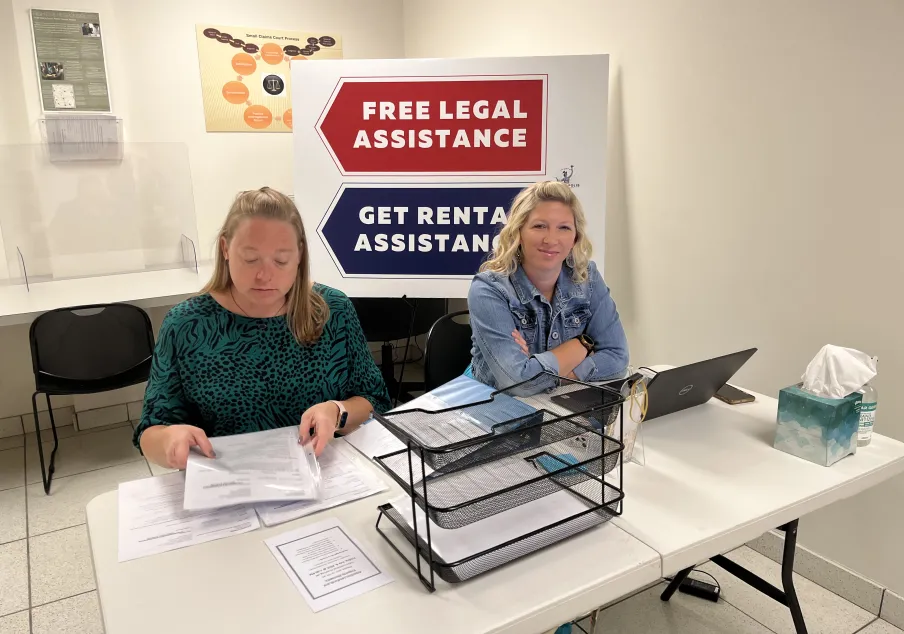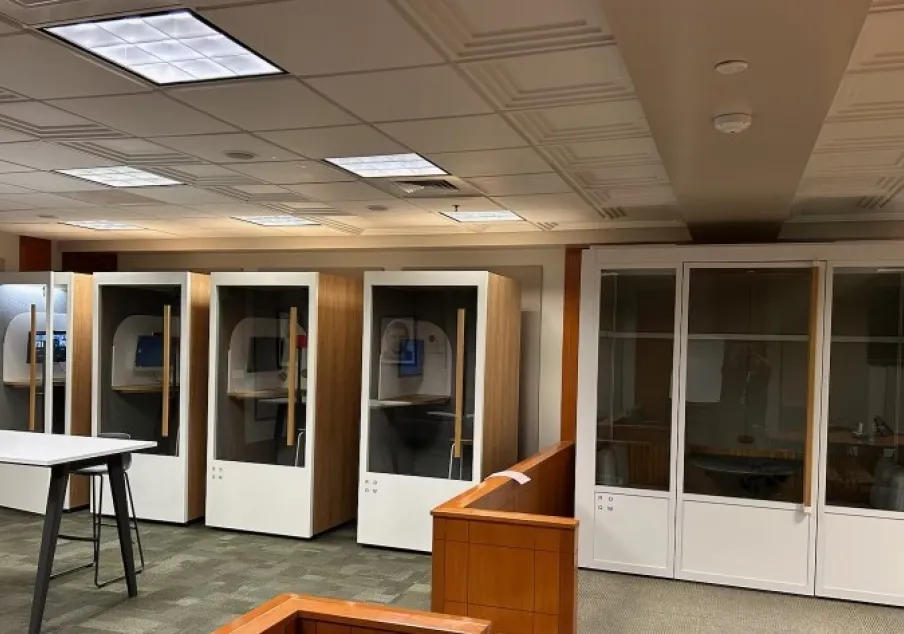Operations & governance

Resolving disputes with civil diversion
Strong civil diversion programs rely on community partnerships, with courts creating referrals to local assistance and providing in-person or virtual spaces for program partners to meet with litigants.
Understanding ethics
Turn to our resources for insights on the makeup of state conduct commissions, how they conduct their business and what types of sanctions they issue or recommend. We also share guidance on current ethics issues facing the judiciary and courts.

Meeting the needs of today's jurors
Our resources guide courts through the most pressing issues in jury operations today, through videos, webinars, and practical strategies and recommendations for reforms to help make jury duty more accessible, efficient, and respectful of the time and well-being of those who serve.

Mastering high-profile case management
A high-profile case can hit your court at any time. Turn to our guidance to ensure you have a plan – and comprehensive team – in place to quickly respond once you realize you have a case that's attracting an unusual amount of attention.
Put our experts to work
Let us help you solve your thorniest court administration challenges. Our team can bring an outside perspective informed by decades of experience and national expertise.

Reimagining courthouse planning & security
Courts are embracing flexible spaces, self-service kiosks, and service centers while emerging issues facing the justice system today range from heightened security concerns and threats from natural disasters and weather events to aging facilities and infrastructures. We're here to help you navigate these changes to make court services more convenient and accessible.
Explore our operation & governance resources
Putting consumer debt reforms into practice
Our debt collection reform implementation toolkit creates better access for all parties and increases procedural fairness.
Answering the call for jury service
This video explains the jury selection process, understanding your jury summons, and what to expect when called to serve.
Jury management in high-profile cases
This guidance reviews all necessary considerations for juries in high-profile cases, and complements our other high-profile case management recommendations.
Jury data dashboard
NCSC's interactive visualization tool offers state-by-state comparisons so you can identify trends shaping the landscape of jury service nationwide.
Understanding lifetime CDL disqualification for human trafficking convictions
This primer provides practical guidance for practitioners across the enforcement and adjudication continuum by offering a roadmap for identifying relevant information to be communicated between organizations to ensure individuals who exploit their commercial driving privileges to commit human trafficking are appropriately sanctioned.
AI foundations in the courts
Here are some practical insights for building a solid foundation for responsible AI use in your court, encompassing privacy, bias, ethics, and accessibility.
Guiding principles for civil diversion programs
The Conference of Chief Justices and Conference of State Court Administrators adopted these five guiding principles for civil diversion programs in August 2024.
Fines, fees & pretrial practices - state reform
Browse NCSC's map to see a state-by-state summary of recent studies, programs, laws, rules, grants, and litigation regarding court fines, fees, and pretrial practices.
Contracting digital services for courts
NCSC offers guidance to help your court navigate complex agreements with digital service providers to ensure transparency, security, and fairness.
Getting started with eviction diversion
The guidelines and methods developed by our experts address issues shared by all models of eviction diversion programs.
Removing housing barriers through record relief
A growing number of jurisdictions are exploring the use of eviction sealing and expungement to disrupt harm from eviction filings that can follow renters for years, regardless of the circumstances or outcome of the court filling.
Learn ways to help end human trafficking
Our human trafficking awareness course for commercial driver's license (CDL) holders assists state and local courts in joining the effort to end human trafficking.
AI-generated evidence: A guide for judges
Helping judges evaluate AI-generated content and ensure fair, informed decisions that preserve the integrity of judicial proceedings.
What is a conservator?
In this first video of a five-part series, you will learn the role and responsibilities of a conservator.
Jurors, the internet & social media
This video explains jurors' responsibilities regarding their internet and social media use, and can be shown to jurors either during orientation or as part of the judge's instructions. It helps ensure that jurors are fully aware of the rules and their role.




